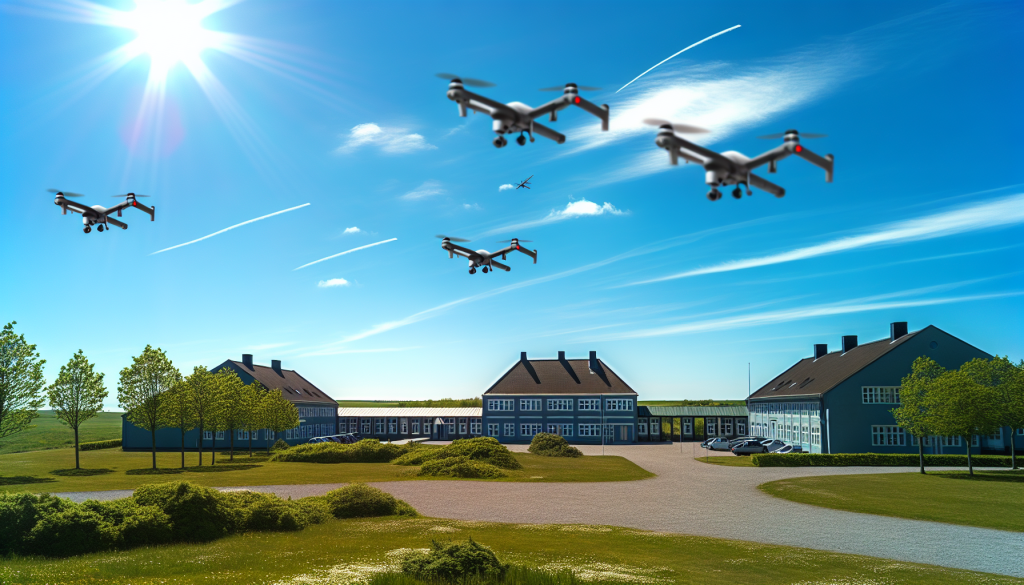Tensions Rise as Denmark Faces Drone Intrusions Allegedly Linked to Russia
Denmark is currently grappling with a series of unsettling incidents involving unidentified drones that have violated its airspace. Over the past week, these unauthorized incursions have sparked concerns of a “hybrid war,” a term that reflects the complex interplay of military and non-military tactics used by state and non-state actors.
Recent Drone Incidents
On a notable Friday night, reports emerged of one or two drones being spotted above Denmark’s largest military base, the Karup air base. Local police confirmed the sighting, noting that the incident lasted for several hours. This was not an isolated event; rather, it was part of a troubling pattern starting from earlier in the week. On Wednesday, drones were seen near Skrydstru Air Base and Aalborg Airport, prompting the latter to suspend flights for an hour. A significant incident occurred on Monday at Copenhagen Airport, where drone activity forced a four-hour halt to air traffic, affecting around 20,000 passengers.
Government Response
The Danish government has taken these incursions seriously, characterizing them as acts of hybrid warfare. Prime Minister Mette Frederiksen indicated a heightened state of alert, warning that the country may face an increasing number of such attacks. While the origins of the drones have not been conclusively identified, Frederiksen suggested that Russia poses a significant threat to European security, highlighting an overarching sense of vigilance among Danish authorities.
Speculations About Responsibility
Despite the heightened tension, Danish authorities have yet to determine the specific responsibility for these airspace violations. They have, however, alluded to the presence of a “professional actor,” hinting at the possibility of organized state involvement. As investigations continue, there is speculation about potential links to Russia, particularly given recent incidents reported in neighboring countries like Poland and Romania.
Russia’s Denial
In the face of mounting accusations, Russia has “firmly denied” any involvement in the drone incidents. The Russian embassy in Copenhagen dismissed claims as part of an “orchestrated provocation.” The geopolitical implications of this denial are substantial, reflecting the strained relations between Russia and Western nations following ongoing tensions related to Ukraine.
Denmark’s Strategic Moves
As a proactive measure, Denmark has announced its intention to enhance its defense capabilities against drone threats. This includes acquiring new technology designed to detect and neutralize unauthorized drones, as well as long-range precision weapons intended for distant targets. These developments underline Denmark’s commitment to safeguarding its national security and supporting broader European efforts.
Investigating Wider Maritime Activities
In addition to the drone incursions, Danish police have launched investigations into various maritime activities, including the movement of a Russian warship near Denmark’s territorial waters. This reflects a multi-faceted approach by Danish authorities to address potential threats from both air and sea.
Collective Defense Efforts
The situation has not gone unnoticed at the EU level. Ten European Union countries recently decided to collaborate on developing a drone defense system—a “drone wall” aimed at detecting and addressing unauthorized entries into airspace. European Defense Commissioner Andrius Kubilius emphasized the need for a firm and united response to the challenges posed by Russia. This initiative marks a significant step in bolstering collective defense capabilities among EU member states.
As tensions continue to unfold, the situation remains fluid, highlighting the complexities and geopolitical intricacies of modern security challenges in Europe. The ramifications of these drone incursions extend beyond Denmark, resonating throughout the continent and calling for a cohesive response to emerging threats.

